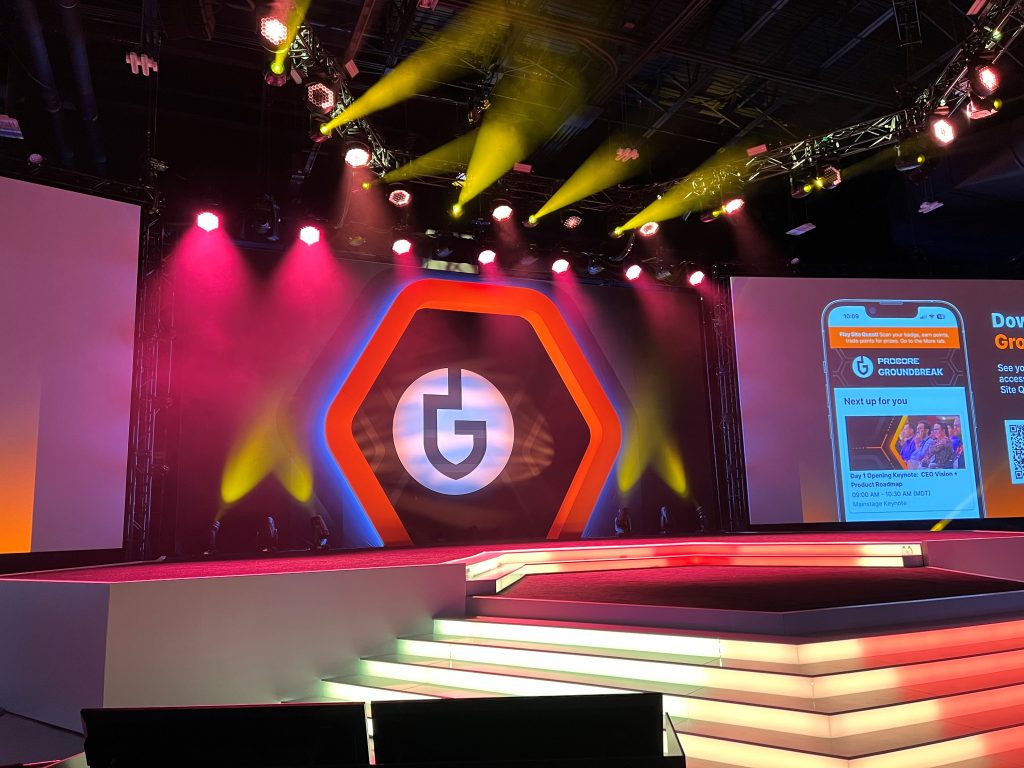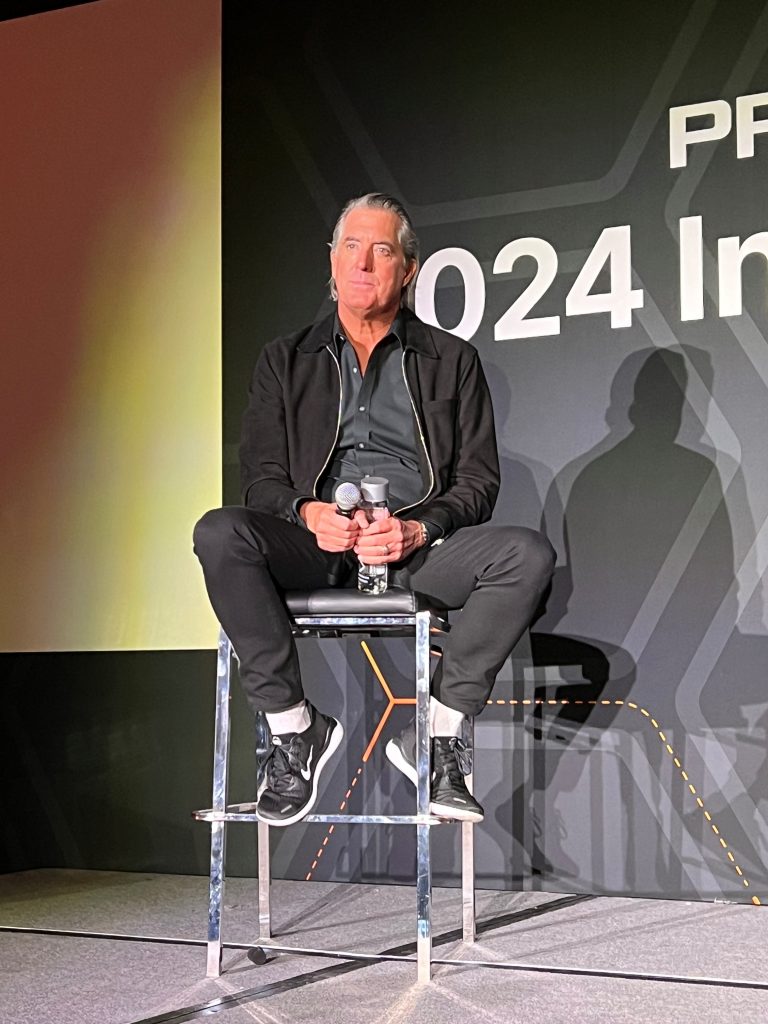Last week I had the opportunity to attend Procore’s Groundbreak event, where we looked to the future of technology in the construction industry. The biggest takeaway: AI (artificial intelligence) is here, and it is going to completely transform how the construction industry does business. But let me be the first to caution all my construction readers not to rush into AI without having a plan. Let me be clear about this before everyone freaks out. I say play with GenAI. Get a good feel for it. And then plan your strategy.
Perhaps this doesn’t come as a big surprise. We have all heard the numbers. The AI market will grow to nearly $1 trillion by 2027. Some predictions suggest we are seeing the AI market growing between 40% to as a much as 55% a year. The growth is simply astronomical—and now we are seeing it come for construction and our projects.

Resource Management, Scheduling, Safety, Oh My!
At the Groundbreak event, many companies made some big announcements, including Procore, which unveiled Resource Management, for labor, equipment, and materials tracking and planning. Part of this is spurred on by the company’s acquisition of Intelliwave Technologies, which offers materials solution SiteSense. Combining the technologies together enables contractors to do more intelligent materials management.
Procore also announced Scheduling, which is a new solution that integrates with contract schedules and field data and is powered by AI, ultimately flagging potential risks, and ensuring the project team stays on time and on budget.
We also see Procore has expanded its Safety solution, which will centralize safety tasks with new capabilities like pre-task plans, jobsite hazard analysis, certification tracking, onsite orientations, and more. This technology will promote better safety while also minimizing administrative overhead.
All about the AI
Perhaps some of the biggest announcements at the event were directly related to AI. For example, Procore announced new AI-powered Agents, with AI platform capabilities designed to enhance project efficiency. We also see Procore Copilot being available globally to ensure users can quickly retrieve information with instant access to documents.
All this is big news for construction, yet at the same time here’s the hard reality. AI brings great opportunities, and it also brings great challenges that must be overcome. This is something I heard throughout my conversations at Groundbreak last week.
Some hard numbers also point to interesting trends. Gartner suggests 45% of CIOs in Europe, the Middle East, and Africa are tasked with leading an AI strategy at their enterprise—yet there are five big challenges that keep coming up.
Business benefits don’t always materialize: In a second quarter 2024 Gartner survey of more than 5,000 digital workers in the U.S., U.K., India, Australia and China, employees in EMEA said they saved an average of 3.37 hours per week by using gen AI. But not all employees get the same degree of benefit from using gen AI.
Costs can rise quickly: More than 90% of CIOs said managing cost limits their ability to get value from AI for their enterprise, according to a Gartner survey of more than 300 CIOs in June and July 2024. In fact, Gartner believes cost is as big an AI risk as security or hallucinations.
Dealing with data everywhere: The Gartner survey of more than 300 CIOs found on average, only 35% of their AI capabilities will be built by their IT teams. This means innovative approaches are needed to manage and protect data access and govern AI inputs and outputs and safely deliver AI value.
Positive and negative impacts abound: Some employees may feel a strong affinity for AI—and others may feel threatened or resentful. These extreme reactions to AI can lead to unintended behavioral outcomes that negatively impact employees’ work performance. In the June/July Gartner survey, only 13% of EMEA CIOs said they focus on mitigating potential negative impacts of gen AI on employee well-being.
Anonymized data? It’s important to note data has not always been easy to extract. It has only recently been with the introduction of new tools and features that clients have been able to access their own customer data. Initially, data extraction was more manual and less streamlined, making it very cumbersome to leverage years of information.

In the case of Procore, now the question becomes after decades of collecting all this information the company has yet to be able to verify how well it has modified all the data, which makes it virtually impossible to identify projects all while retaining the usefulness of the information originally gathered. When I pressed Procore Technologies CEO Tooey Courtemanche at the Media Press Briefing, he said all the data was put into data lakes.
Now perhaps someone can correct me if I am wrong, but the concept of data lakes emerged in the early 2000s designed to handle the increasing data volume, variety, and velocity of data, allowing for the storage of raw, unstructured, semi-structured, and structured data from multiple sources without a predefined schema.
If that was happening, when asked for the anonymized data and being able to ensure the integrity and security that clients are not seeing other data, Courtemanche was going to get back to me. Well, here’s my blog, and you get the picture.
Courtemanche did make a great point we lack the people, trade, and human skills to get the job done. Let’s not put good money after bad in the race to get to the finish line. Remember winning isn’t everything, especially if you end up penniless.
Find the right partners who care for you and who will help you find your way to the finish line. It might be Procore. It might be someone else, just don’t be a deer in the headlights. React accordingly and you will win in the end.

The bottomline is there are both opportunities and hurdles to implementing new technologies. What are you seeing in your own organizations? What did you see and hear at Groundbreak last week? What are your predictions for AI in construction in the years ahead?
Want to tweet about this article? Use hashtags #construction #IoT #sustainability #AI #5G #cloud #edge #futureofwork #infrastructure #GBK24


